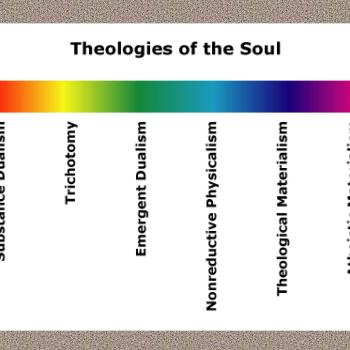One of the common terms of abuse thrown at any person who defends some moral principle that makes us uncomfortable is “self-righteous”. We just love that word! Prolifers are “self-righteous” according to abortion supporters. Anti-torture peopel are self-righteous. Teatotallers are self-righteous according to drinkers, tobacco opponents are self-righteous according to smokers, opponents of gay marriage are self-righteous according to supporters of gay rights. It’s perhaps the favorite term of abuse for anybody attempting to make a moral argument.
But what does it actually mean? For most speakers of modern English, it means “I don’t like you and the moral system you express belief in makes me very uncomfortable and angry.” Indeed, in postmodern culture, there is basically no difference between calling somebody “self-righteous” and calling them “righteous”. It’s a word that has irretrievably come to mean “Pharisaic” or simply “full of yourself”.
This is a real change from biblical thinking. In Scripture, being “righteous” is a real compliment. It means something much closer to what modern English speakers mean by “a great guy” and “salt of the earth” and even “genuine hero” than the crabbed teatotaller, icy snob, or self-regarding gasbag we think of when we hear the word today. When Matthew calls Joseph a righteous man, he means that as a good thing, not as an implication that he’s rulebound unfeeling moral calculating unit unable to sympathize with human frailty in his persecuting zeal to maintain his status as Holier Than Thou.
So what’s the difference between righteousness and self-righteousness? The word “self”. A person who upholds a moral system (especially a difficult one) is not automatically self-righteous. They are not even self-righteous if they uphold that system in an irritating way. We have it from Scripture that the apostles and evangelists upheld an extremely high moral standard: one that the Pharisees themselves could not possibly hope to keep. But they were not self-righteous in doing so, even when they carefully repeated the denunciation their Master had uttered against the Pharisees as “blind guides” and “white sepulchers”. Why were these obnoxious and annoying people not self-righteous? Because they emphatically insisted that their righteousness came from Christ, not from themselves. Indeed, they carefully recorded the fact that, apart from Christ, they could do nothing; that left to themselves, they betrayed and abandoned Christ in his most desperate hour; and that they were quite capable of doing it again if they rejected the saving grace he offered them.
I mention this because some folks have formed the fixed notion that I regard myself as a model of morality since I’ve been banging away on the torture business (an unbelievably tedious task, which I felt conscience-bound to bring up again in the wake of the release of the torture memos, and which, please God, I can quit discussing soon as the hubbub abates). This is to radically misunderstand my attitude to the question (which is probably understandable since I have not discussed this aspect of my engagement with the matter.)
I emphatically don’t claim that it would be impossible for me to ever cave to the temptation to torture due to my moral perfection as That Kind of Chap. On the contrary, I assure you, that I am quite capable of doing so under the right combination of pressure, fear, and self-deluding sophistry. I can barely restrain myself from eating a donut when I shouldn’t. Do you really think I’d be a match for the graver sins of pride and violence given a sufficiently despicable enemy and a sufficiently clever rationale for beating his brains in? You may as well say that the alcoholic who refuses the blandishments of his friends to go to the pub is self-righteous. I can well imagine situations in which I would enjoy sawing KSM’s head off with a knife.
It is precisely because I have plenty of experience with what I’m really made of (and a scriptural assurance that everybody else is made of the same weak stuff) that I think it wicked and dangerous to encourage our weak race to get as close as possible to torturing people without, you know, quite doing it. I would as soon counsel my children that they can go ahead and get naked with a girl in bed, but just don’t have sex. I freely confess that I have been obnoxious and tedious on this subject. I also freely grant that I have been, at times, needlessly insulting and not loving of my enemies in arguments about it. For this I apologize. But the notion that I think I am some tower of moral strength here, in no need of divine grace, help and protection, is to misread my thinking here about as badly as one could possibly do. My heart (I need no other) sheweth me the wickedness of the ungodly.
I suspect about 99% of the people in the world who are declared to be “self-righteous” by opponents in moral debates carry in their souls a deep dread (and, often, a bitter memory) of some moral lapse which drives them to strongly emphasize the point of morality under discussion. Unless you can demonstrate that a person is making a moral argument that really is predicated on congratulating themselves as being without the need of divine grace due to their intrinsic goodness, there’s really no sense in calling such a person “self-righteous”. Obnoxious, shrill, irritating, loveless, hostile, and rude, quite possibly. But not self-righteous.















